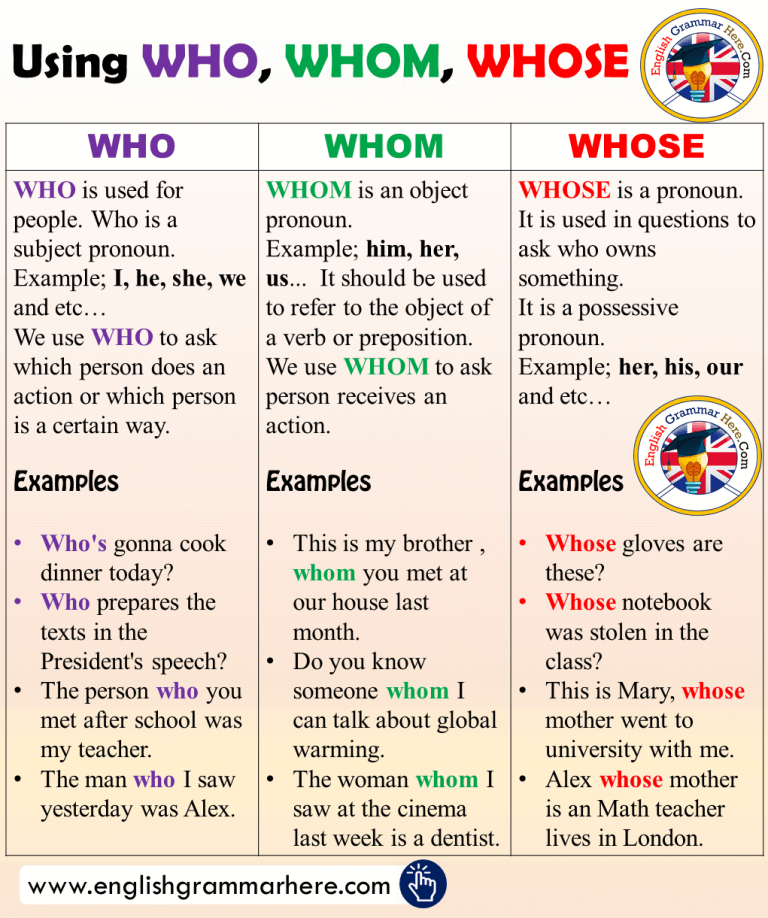
Using WHO, WHOM, WHOSE and Example Sentences in English English
'Who' - 'whose' - 'whom' - 'that' and 'which' - are relative pronouns. 'Where' is a relative adverb. There is often confusion about the use of who, whose, whom, that, which or where. We use who when referring to people or when we want to know the person. Who ate all the chocolates? Who called the police?

Using, Difference Whom and Whose in English English Study Here
The relative pronouns in English grammar are who, whom, whose, which and that. The pronouns we use depends on what we want to refer to and what type of relative clause we are using. Who, whom, whose and that are for people and animals and which, whose and that are for things. Learn about English relative pronouns with Lingolia's online.

Learning English grammar, vocabulary, conversation, free online PDF
Relative pronouns that we use with people who -This relative pronoun is always used along with the subject of a sentence. Look at these sentences: My mother speaks 3 languages. My mother was born in Europe. The word mother is the subject of both sentences. Each sentence gives us a different piece of information about my mother.

Using WHO, WHOM, WHOSE in English Lessons For English
Relative Pronouns Who, Whom, Which, Why, When, Where, Whose, That, Definition and Example Sentences Who Relates to people (Subject) The musician who wrote this song is French. Whom Relates to people (Object) I know the boy whom sits next to you. Which Relates to animals and objects This is the cake which Mary made. Why Refers to reason Do you know the reason why the market is closed today.

Using WHO, WHOM, WHOSE English Study Here
Whom is the object form of who. We use whom to refer to people in formal styles or in writing, when the person is the object of the verb. We don't use it very often and we use it more commonly in writing than in speaking. We use whom commonly with prepositions.
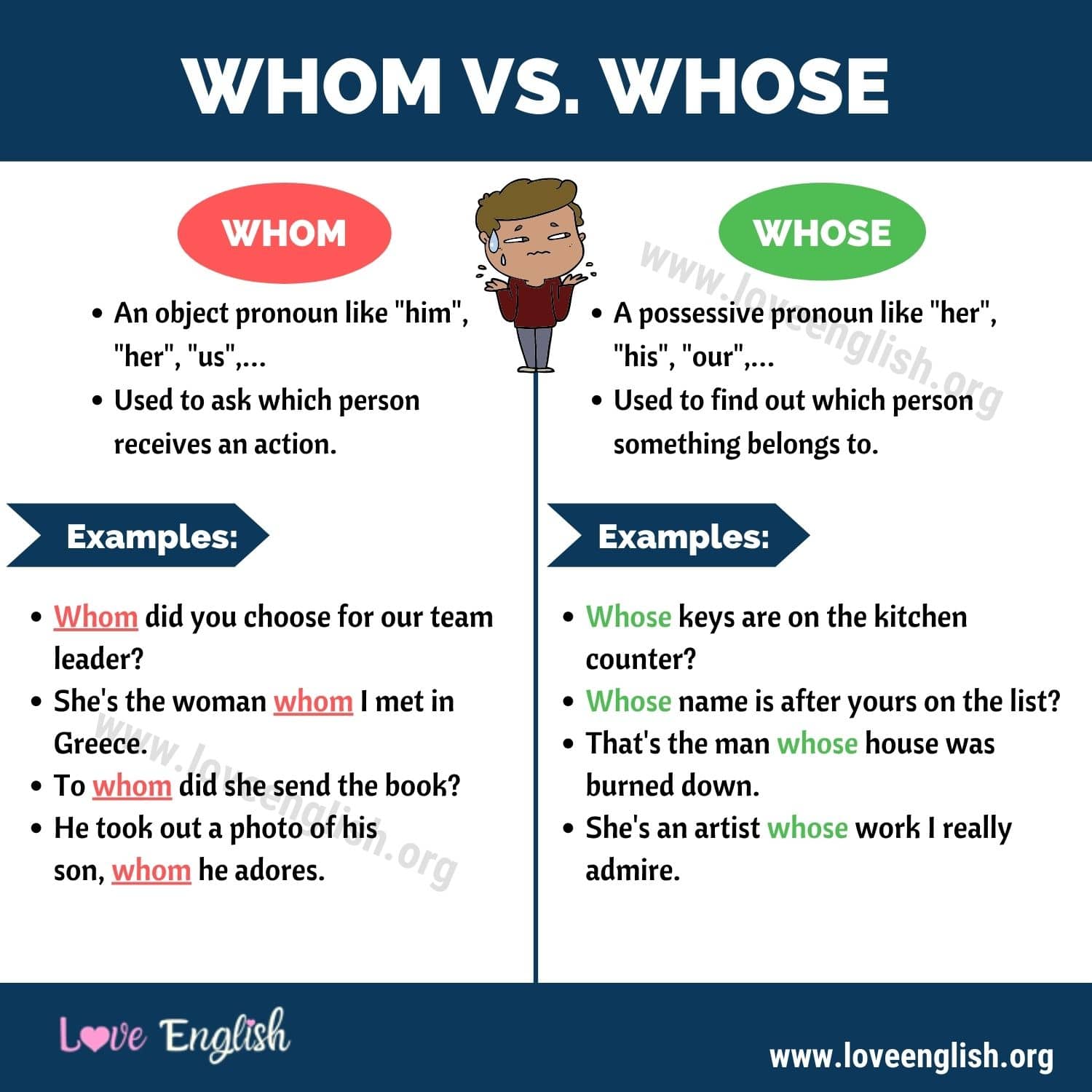
Whom Vs. Whose How To Use Whom And Whose In A Sentence Love English
' whose '. is a possessive relative pronoun and refers to persons as well as things and animals: "My friend Sandra, whose brothers live in Australia, is going to visit me." ' whom '. is the object form of the relative pronoun ' who ' and is utilised almost only in written and formal English for persons.
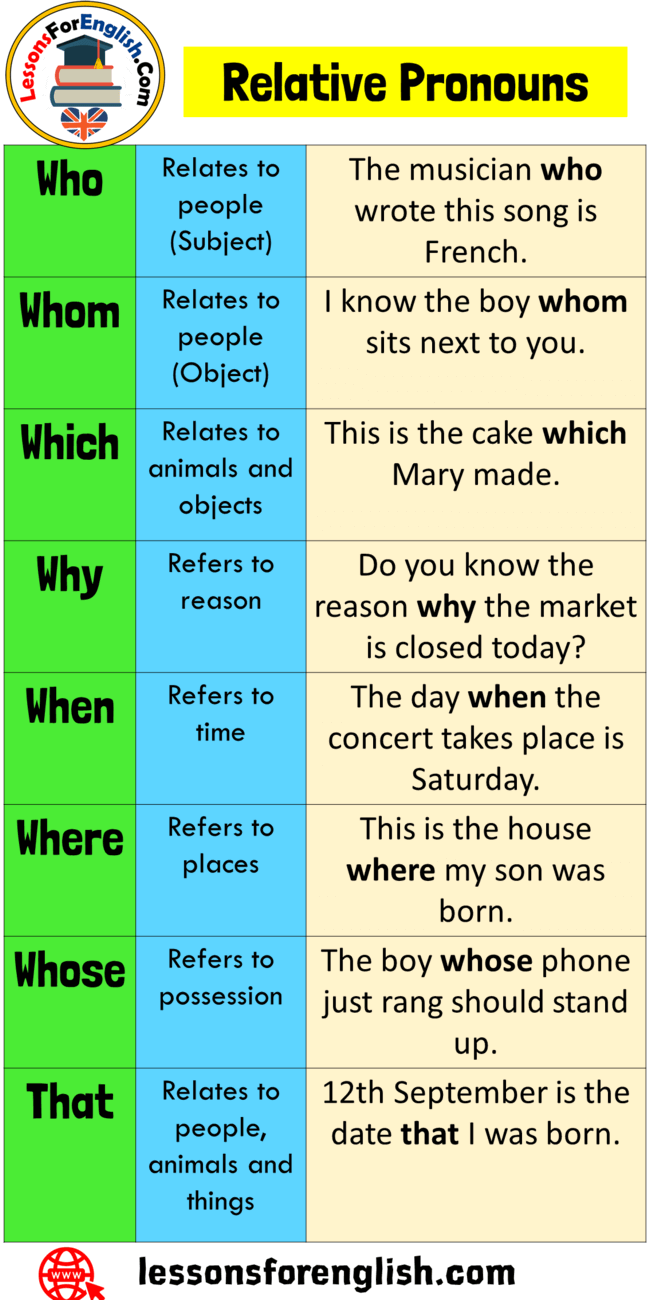
Use of what who which whom why how altajas
Grammar What type of pronoun are the words who, whom, whose, which, and what? - Easy Learning Grammar The words who, whom, whose, which, and what are interrogative pronouns. The interrogative pronouns who, whom, and whose are used only for reference to people. The interrogative pronouns which and what are used for reference to things.
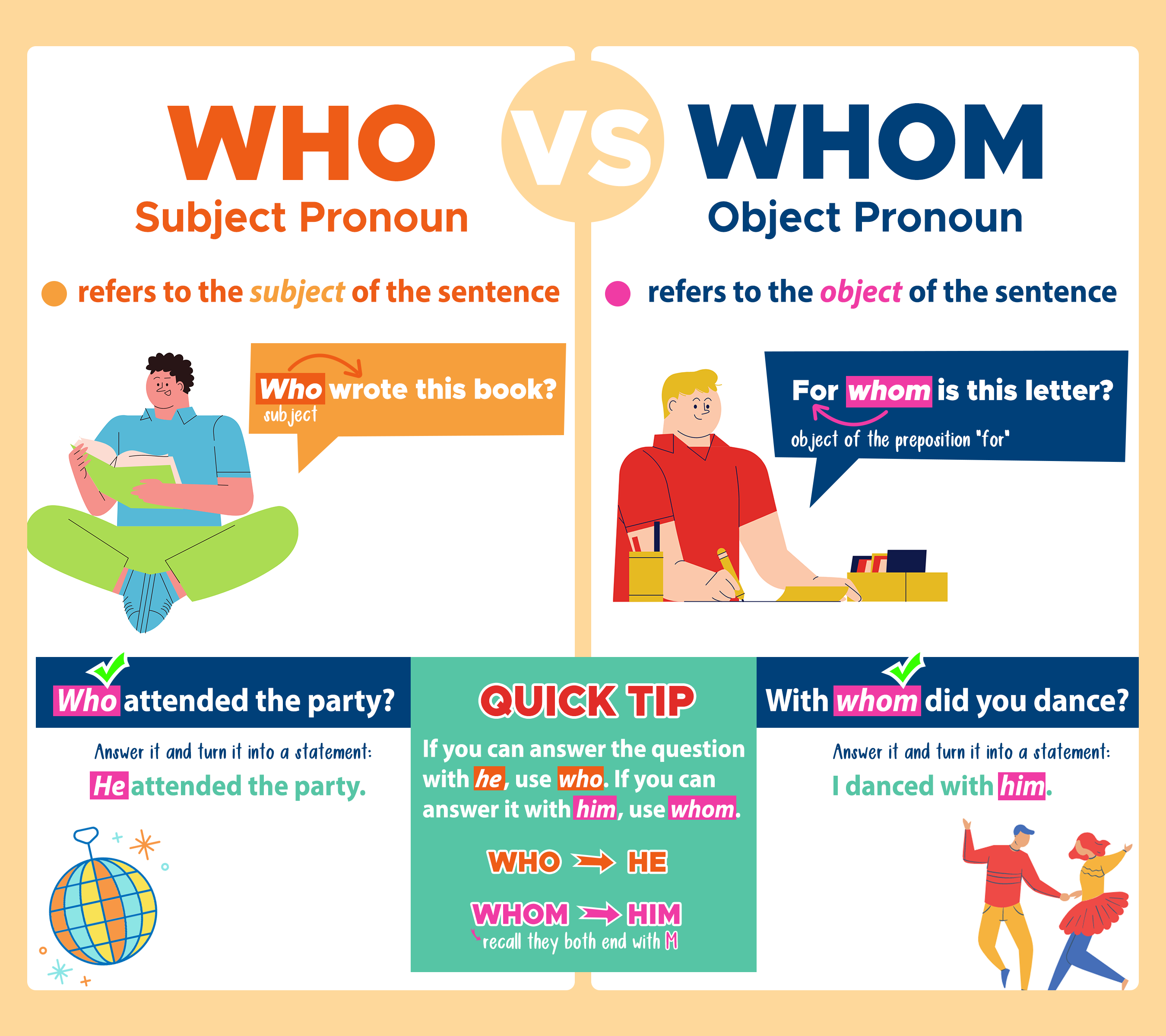
Who vs Whom What's the Difference? Curvebreakers
We use "who" to ask which person does an action or which person is a certain way. Examples: Who made the birthday cake? Who is in the kitchen? Who is going to do the dishes? "Whom" is an Object Pronoun "Whom" is an object pronoun like "him," "her" and "us." We use "whom" to ask which person receives an action. Examples:

Who vs. Whom When to Use Whom or Who with Useful Examples • 7ESL
Relative clauses and pronouns! Many native speakers don't understand how to use who, whom, whose and who's correctly! 📝 *GET THE FREE LESSON PDF* _here_ 👉.
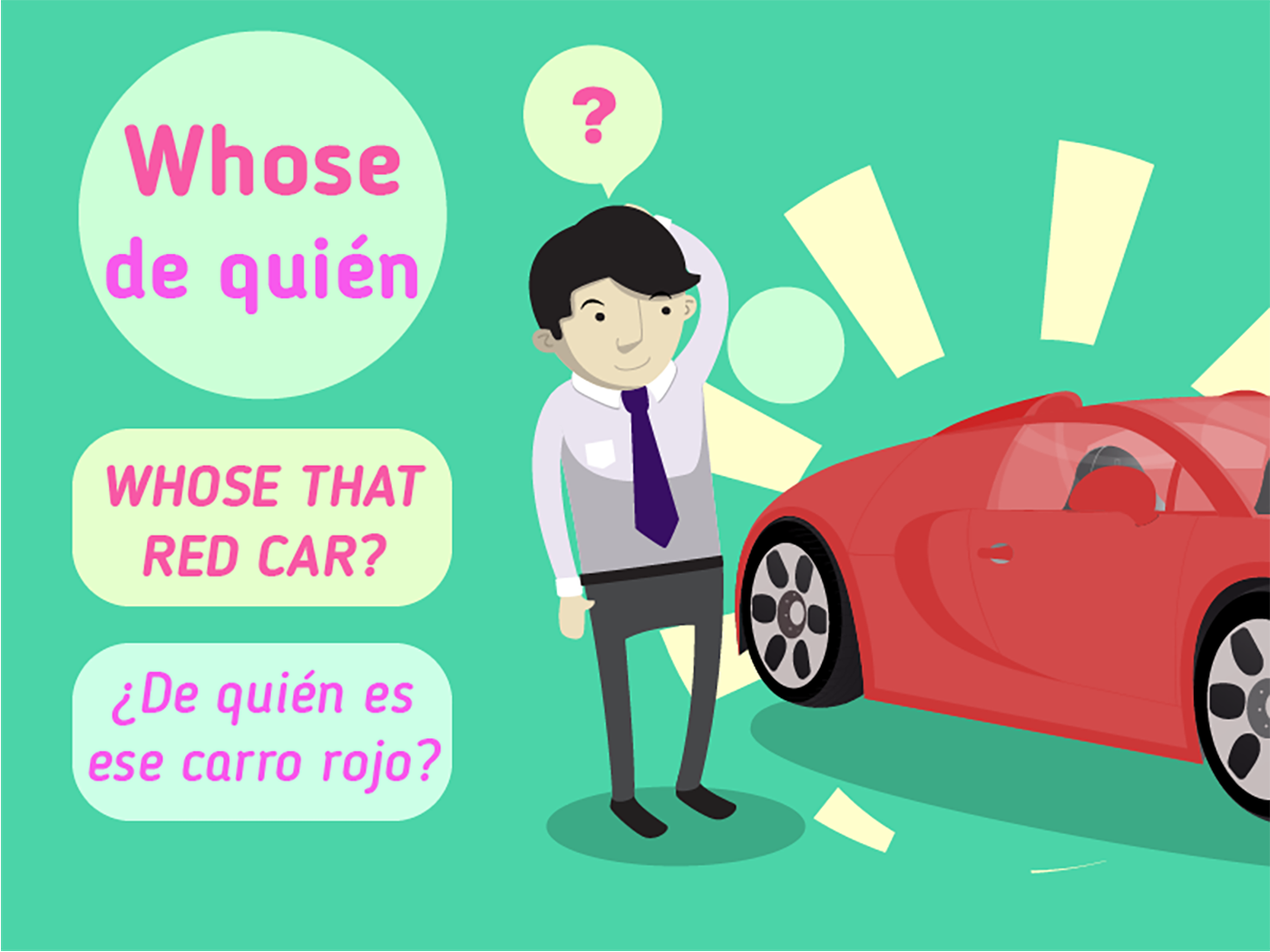
Uso de Who, Whom y Whose Nivel A2 GCFGlobal Idiomas
Whom Definition Whom is an object pronoun, defined as the objective case of who. As we have seen above, who acts as the subject of the sentence, whereas whom acts as the object of the sentence. In the sentence used above about Harvey and Jay playing racquetball, Jay is the object. Harvey played racquetball with Jay.
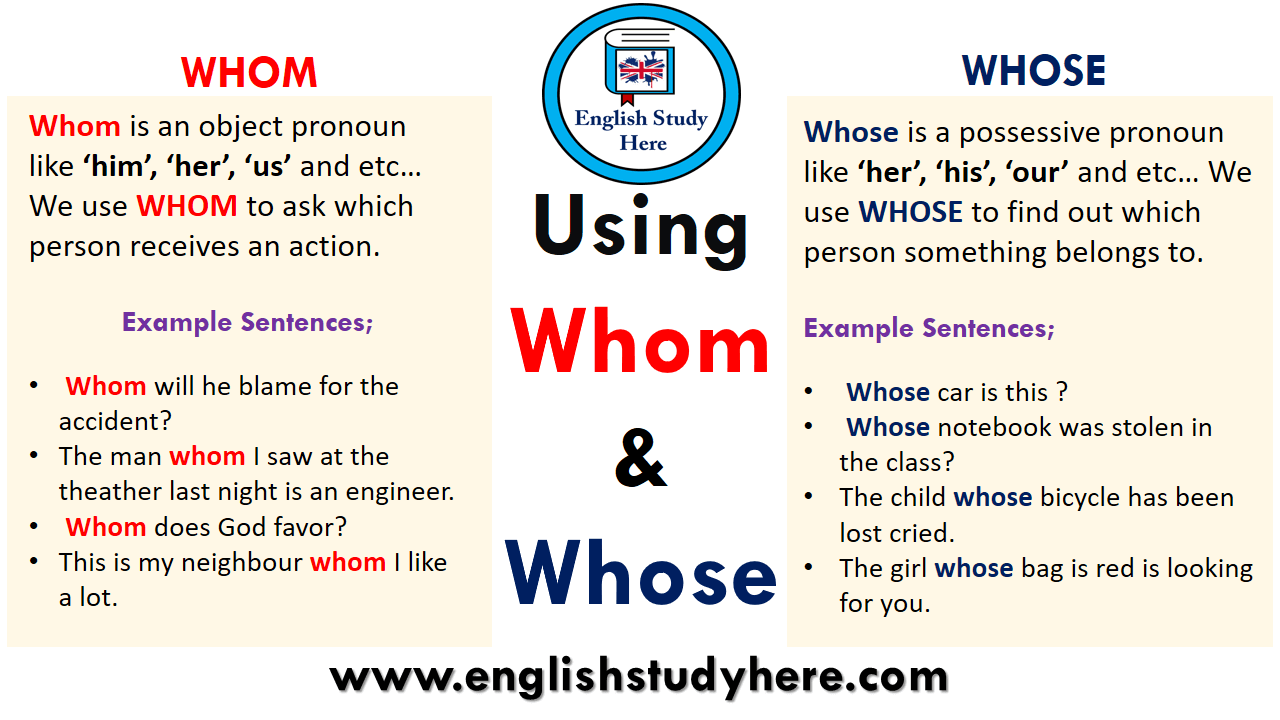
Using Whom and Whose English Study Here
relative pronouns, who, whom, whose, which, that Pronouns are words that take the place of a noun. Relative pronouns are used at the beginning of an adjective clause (a dependent clause that modifies a noun). The three most common relative pronouns are who, which and that. Who has two other forms, the object form whom and the possessive form whose.

Whose vs. Who's Useful Difference between Who's vs. Whose • 7ESL
Relative pronouns 1 Relative pronouns 2 Be careful! The relative pronoun is the subject/object of the relative clause, so we do not repeat the subject/object: Marie Curie is the woman who she discovered radium. ( who is the subject of discovered, so we don't need she) This is the house that Jack built it.

Commonly Confused Words in English WHO WHOM WHOSE ESL Buzz
English Dictionary Grammar How do you use the words who, whose, which, and what as pronouns in questions? - Easy Learning Grammar The pronouns who, whose, which, and what can be the subject or object of a verb. Who can help me? Whose is the new sports car outside? Which was your best subject at school? What happened next?

WHOM vs WHOSE How to Use Whom and Whose in a Sentence Love English
Of Which vs Of Whom 1. We can use a non-defining relative clause with "of which" and "of whom" after quantifiers: All, both, each, many, most, neither, none, part, some. For Example: Adam has two brothers. Both of them work as an engineer. Adam has two brothers, both of whom work as an engineer. Brad has very nice neighbors.

mELTing Activities, Lessons and Ideas Whose whom is whose? (or is it who?)
In recent years, who often replaces whom. Which can serve as the subject of a question, too. A familiar example is "Which came first—the chicken or the egg?". The answer—the chicken, because egg shells form using a protein that exists only in the ovaries of a chicken—is a noun, a thing. Many find it harder to use who or which as.
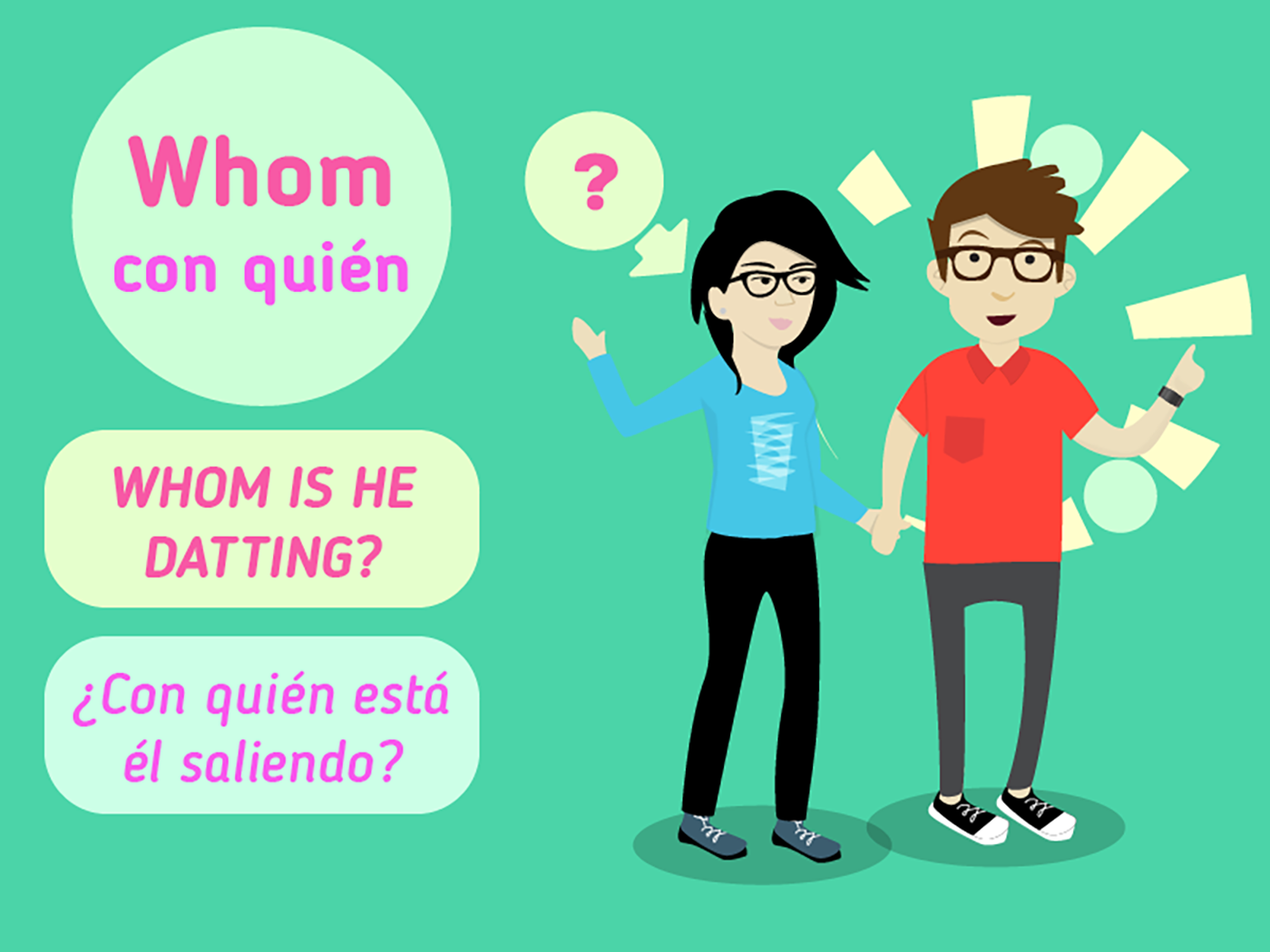
Uso de Who, Whom y Whose Nivel A2 GCFGlobal Idiomas
Choose the correct answer: who, whom, which or whose. He bought all the tools. who whom whose which. are required to fix his old car. This is the doctor. who whom whose which. helped Sara recover from her illness. This is the girl. who whom whose which.
